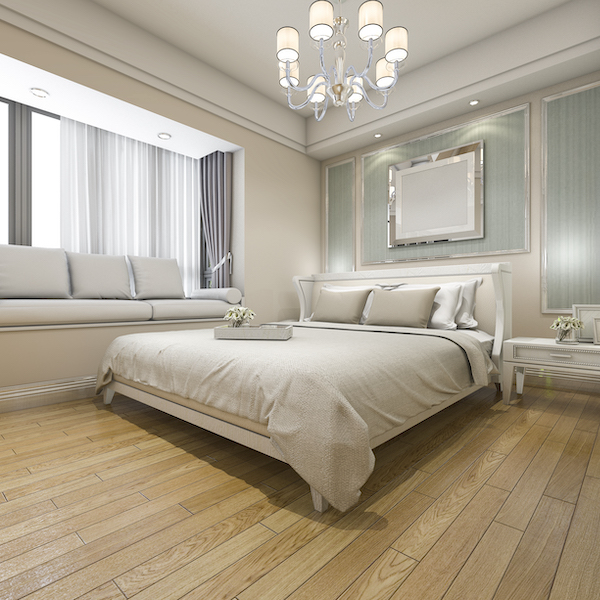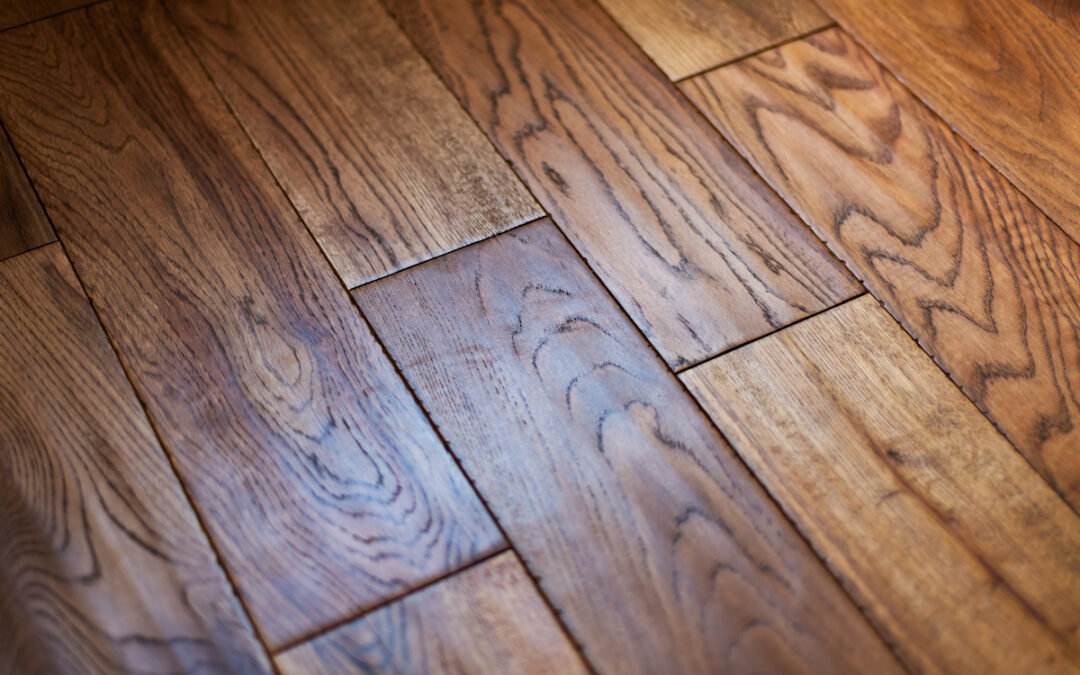Hardwood flooring is renowned for its timeless beauty, durability, and ability to elevate the aesthetic of any space. However, with a variety of hardwood flooring types available, it can be overwhelming to determine which is best for your needs. Each type comes with its own set of characteristics, advantages, and disadvantages. In this article, we will explore the various types of hardwood flooring, highlighting the pros and cons of each to help you make an informed decision.
Different Types of Hardwood Flooring
1. Solid Hardwood Flooring
Overview: Solid hardwood flooring is made from a single piece of natural wood, usually about ¾ inch thick. It’s available in a variety of wood species, including oak, maple, walnut, and cherry, each offering distinct grain patterns and colors. Solid hardwood can be sanded and refinished multiple times, making it one of the most long-lasting flooring options.
Pros:
- Longevity: Solid hardwood can last for decades, and when it begins to show wear, it can be sanded and refinished to restore its original appearance.
- Classic Appearance: The authentic, rich look of natural wood gives solid hardwood a timeless appeal.
- Variety of Species and Finishes: Available in numerous wood types, stains, and finishes to complement any interior design.
- Increases Home Value: Due to its durability and appeal, solid hardwood can significantly boost the resale value of a home.
Cons:
- Cost: Solid hardwood tends to be more expensive than other flooring types, both in terms of material and installation.
- Moisture Sensitivity: It is not recommended for areas prone to moisture, like bathrooms or basements, as it can warp or swell.
- Installation Complexity: Installation requires a professional, especially for large spaces, as it involves nailing or stapling the planks to a subfloor.
2. Engineered Hardwood Flooring
Overview: Engineered hardwood is composed of a thin layer of real hardwood on top of a core of plywood or high-density fiberboard (HDF). This construction gives it greater stability, making it more resistant to moisture and temperature fluctuations compared to solid hardwood.
Pros:
- Moisture Resistance: Engineered hardwood is more stable in areas with fluctuating humidity levels, such as basements or kitchens.
- Affordability: It’s generally less expensive than solid hardwood due to its layered construction.
- Ease of Installation: Many engineered hardwood options feature click-and-lock systems, allowing for DIY-friendly installation, and they can often be installed over existing floors.
- Aesthetic Versatility: The top layer of real wood provides the same look as solid hardwood, with a variety of wood species and finishes available.
Cons:
- Limited Refinishing: While engineered hardwood can be refinished, it can only be done a limited number of times due to the thinness of the top wood layer.
- Durability Varies: The durability of engineered hardwood depends on the thickness of the top layer. Lower-quality versions with thinner veneers may wear out more quickly.
- Less Prestige: Engineered hardwood doesn’t have the same level of prestige or longevity as solid hardwood, which may affect long-term home value.
3. Laminate Flooring (Wood-Look)
Overview: While not technically hardwood, laminate flooring is often considered in the same category because it can closely mimic the appearance of real wood. Laminate is made of composite wood that’s been topped with a photographic image of wood grain and coated with a protective layer.
Pros:
- Cost-Effective: Laminate flooring is much more affordable than solid or engineered hardwood.
- Easy to Install: Laminate often features a click-and-lock installation system, which makes it easy for DIY installation.
- Scratch Resistance: The top wear layer is highly resistant to scratches, dents, and stains, making laminate a durable option for high-traffic areas.
- Wide Range of Styles: With advanced printing technologies, laminate can mimic many wood species and finishes convincingly.
Cons:
- Cannot Be Refinished: Once laminate flooring shows signs of wear, it cannot be sanded or refinished. It must be replaced.
- Feels Less Authentic: While it may look like real wood, laminate doesn’t have the same feel or texture underfoot, and it lacks the warmth and character of natural wood.
- Lower Home Value: Because it’s not real wood, laminate flooring does not add the same value to a home as solid or engineered hardwood.
 4. Reclaimed Hardwood Flooring
4. Reclaimed Hardwood Flooring
Overview: Reclaimed hardwood flooring is made from salvaged wood, often from old buildings, barns, or factories. This type of flooring is valued for its unique character, sustainability, and history. Reclaimed wood often comes in wide planks with unique grain patterns, nail holes, and other natural imperfections.
Pros:
- Eco-Friendly: Using reclaimed wood is a sustainable choice, as it recycles existing materials and reduces demand for new lumber.
- Unique Appearance: No two planks are alike, giving your floor a one-of-a-kind, rustic aesthetic that tells a story.
- Durability: Reclaimed wood often comes from old-growth forests, which means the wood is denser and more durable than newer, farmed wood.
Cons:
- Cost: Reclaimed wood is often more expensive due to the labor-intensive process of salvaging and refinishing the wood.
- Limited Availability: The availability of specific types of reclaimed wood may be limited, and finding enough matching material for larger projects can be challenging.
- Potential for Imperfections: Some imperfections, such as warping or splitting, may be present in reclaimed wood, requiring careful selection and preparation.
5. Bamboo Flooring
Overview: Bamboo is often grouped with hardwood flooring, though it’s technically a grass. It has become a popular eco-friendly alternative to traditional hardwood due to its rapid renewability and modern appearance. Bamboo comes in both solid and engineered forms.
Pros:
- Sustainable: Bamboo grows much faster than hardwood trees, making it a more environmentally friendly option.
- Durable: Strand-woven bamboo is harder than most traditional hardwoods, making it highly durable and resistant to scratches and dents.
- Affordability: Bamboo flooring is generally less expensive than many hardwood options.
Cons:
- Moisture Sensitivity: Like hardwood, bamboo can be sensitive to moisture, especially in humid climates.
- Limited Refinishing: Depending on the type, some bamboo floors cannot be refinished, particularly engineered bamboo.
- Variability in Quality: The quality of bamboo flooring can vary widely depending on the manufacturing process, with lower-quality options being prone to damage.
6. Cork Flooring
Overview: Cork flooring, made from the bark of cork oak trees, is another eco-friendly alternative to traditional hardwood. It has a unique appearance and provides a softer, more cushioned surface underfoot.
Pros:
- Eco-Friendly: Cork is a renewable resource, as harvesting the bark doesn’t harm the tree.
- Comfort: Cork flooring is softer and warmer underfoot than hardwood, making it more comfortable for long periods of standing.
- Sound Absorption: Cork is a natural sound insulator, reducing noise in the home.
Cons:
- Durability: While cork is relatively durable, it can be prone to scratching, denting, and fading over time.
- Moisture Sensitivity: Cork can absorb moisture, leading to expansion and contraction, so it’s not ideal for wet areas like bathrooms.
Choosing the right type of hardwood flooring depends on several factors, including your budget, aesthetic preferences, lifestyle, and the specific needs of each room in your home. Whether you prefer the classic appeal of solid hardwood, the moisture resistance of engineered hardwood, or the eco-friendliness of bamboo and cork, each option has its unique advantages and drawbacks. By understanding the pros and cons of each type of hardwood flooring, you can make a choice that will enhance your home’s beauty, comfort, and value for years to come.
Looking for Hardwood Flooring in New Jersey?
If you’re looking for a quality hardwood flooring in NJ, check out VCH Flooring today! We’re a flooring company in New Jersey that puts our employees and customers first. We offer high-quality vinyl, hardwood, carpet, and laminate flooring installation services to residents of South and Central NJ. Our core values are honesty, integrity, and transparency. Because your home is an investment, we offer personalized solutions for it. Our professional flooring solutions experts will assess your situation and propose the best flooring options for you to consider. They’re also ready to create custom flooring for your home according to whatever specifications you have. For more information, you can give us a call at (856) 393-1310 or check out our website.
Other Posts:
Gloucester County Flooring Company
Burlington County Flooring Company

